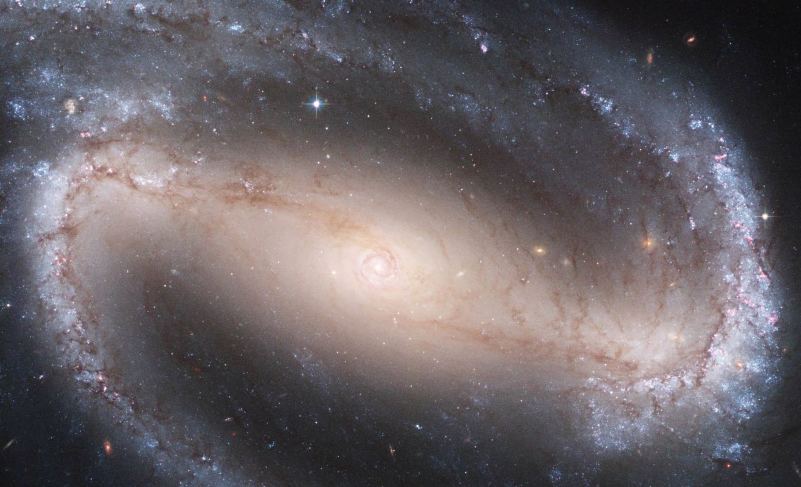DNA is constantly deteriorating
DNA is a molecule inside our cells, but as soon as it is created,
it begins to deteriorate. Unless you can understand this concept, you will
not understand evolution.
Why don't humans produce their own
vitamin C?
Many animals produce their own vitamin C. Human bodies are
capable of producing some amino acids and vitamins, but if you were a God,
and you were designing humans, wouldn't you give humans the ability to
produce
all of the vitamins, amino
acids, and other important molecules that we need to stay alive? In such
a case, we would be able to eat whatever we wanted with no regard to its
vitamin content. No human would ever die from scurvy or suffer from rickets.
This would be especially useful in primitive societies that don't know
what a vitamin is.
Imagine for a moment that every human had the chromosomes necessary
to produce all the vitamins and other molecules that we need to live. In
such a case, we could survive on any
food source, including a diet of 100% sugar, or 100% ice cream.
If all humans had such chromosomes today, would those chromosomes still
be functioning dozens of generations from now? Yes, if we ate only sugar,
but no, if we continued to eat the variety of food that we eat today.
If we regularly ate food that had vitamin C, our body would not need
to produce vitamin C. As a result, when a baby was born with a defect in
the chromosome that allowed for the production of vitamin C, he would not
suffer. Rather, he would pass on his defective chromosome.
Eventually another baby would be born with a different defect in the
chromosomes that produce vitamin C, but just like the previous baby, he
would not suffer.
Through the generations, the defects would accumulate in the chromosomes
that produces vitamin C, but nobody would notice because there was vitamin
C in their food.
In order for a chromosome to remain functional, there
must be selective pressure to weed out the defects. The moment
the selective pressure drops below whatever its maintenance level happens
to be, the chromosome starts accumulating defects.
Why do humans have an appendix?
Animals that are herbivores have a very large appendix, and
it holds bacteria that digests cellulose. However, the appendix in humans
doesn't seem to have any function. It often becomes infected during old
age, and it can be removed without any apparent effect on our health, so
it doesn't appear to serve any useful function to us.
The appendix won't make any sense to you unless you understand the concept
of deterioration. Imagine going back in time to when our ancestors were
animals, and when the appendix was a functioning organ. The animals were
having lots of babies. If a baby animal was born with a slightly defective
appendix, it would have been slightly less likely to survive. However,
at some point in time our distant ancestors began eating less cellulose.
As the quantity of cellulose decreased in their diet, the appendix became
less important. When one of the chromosomes that created the appendix was
damaged, the baby that had the defect was no longer at a disadvantage.
He was able to live successfully and pass on his defective appendix. Eventually
another chromosome that made up the appendix would be damaged, but the
baby with the defect would also survive and pass on its particular defect.
Like a sheet of paper slowly turning yellow, the appendix chromosomes
accumulated defects. In order for the appendix to remain functioning in
humans, there must be a selection of the people with the properly functioning
appendix chromosomes.
Why are our little toes so defective?
The little toe no longer needs to be functioning on a human,
and as a result, defects in the chromosomes that produces it are starting
to accumulate. The only way we can stop our little toe from becoming even
more defective is if we restrict reproduction to the people with the better
toes.
Why do women menstruate?
Many people who believe that menstruation is unique to humans
because we are special. However, menstruation is better explained as the
side effect of an increasingly intelligent female who compensated for the
accumulation of defects in her uterus.
If we could go back in time, we would find a point at which our female
ancestors were not having this menstruation problem. At that point in time,
if a woman was born with a defect that caused an excessive leakage of fluids,
she would have been at a disadvantage compared to the other women. She
would have been less appealing to both the men and the women, and she would
have been more likely to get bacterial infections.
However, there was a point at which our ancestors became so intelligent
that the women born with defective uteruses compensated for the defect
by cleaning themselves. This allowed their defective chromosomes to be
passed on to their children. Eventually another defect occurred, but again
the women compensated for it.
Today the chomosomes that create the human uterus have so many defects
that virtually every woman is suffering from bleeding, pain, and/or emotional
disorders every month.
Why are human babies so helpless?
Most people assume that human babies are helpless because humans
are special, but this is also the result of genetic deterioration.
If we could go back in time we would find that there was a point at
which human babies were much more active, like those of the animals. They
would be able to immediately grab onto their mother, for example.
If an animal were to give birth to a defective baby that could not grab
its mother for a day or two, it would very likely die. However, when our
ancestors reached a certain level of intelligence, they compensated for
their defective babies by giving it special care. They allowed the defective
baby to survive, which allowed it to pass its defective chromosomes to
its children.
Eventually another defect occurred, causing the baby to become even
more helpless, but again the mothers compensated for it. Eventually the
defects accumulated to the point that we see today in which babies are
helpless for months.
If something is functioning, it
is vital to us
When some portion of our body is defective, such as our appendix,
that means that there is not enough selective pressure on that item to
remove the defects as fast as they occur. The opposite of this concept
is also true. Specifically, if something is functioning properly, that
means there must be significant selective pressure
on that item.
A good example of this concept are the enzymes in our saliva. It is
commonly assumed that these enzymes start the process of digestion. However,
these enzymes are destroyed by the acid in our stomach, so they provide
insignificant
digestion. Furthermore, these enzymes are produced all the time, even when
we are not eating.
Obviously, the part of our mouth that produces these enzymes is working
extremely well, and that means there must be significant selective pressure
on humans in order to maintain this particular characteristic. What could
possibly be causing such selective pressure? How would a person be less
likely to survive and/or reproduce if his mouth was not producing these
enzymes? Does his digestive system really need that minimal digestion?
The most likely explanation is that these enzymes are not meant for
digesting food but to clean our teeth and mouth. The people who have defective
mouths will suffer from tooth decay and bad breath. The bad breath is not
nearly as bad as the tooth decay.
Today the selective pressure for our mouth is disappearing. We have
dentists, mouthwash, and toothbrushes to help keep our mouth clean. It
no longer matters if our teeth are straight, or even if we have teeth.
It no longer matters if we have bad breath. We can compensate for these
problems, thereby allowing people with defective mouth chromosomes to reproduce.
Through the generations these defects will accumulate. Eventually every
human will have a seriously defective mouth.
Bad eyesight is no longer selected against, either. Defects in the chromosomes
that create our eyes will slowly accumulate.
Animals don't have problems with their noses dripping mucus, and neither
did our distant ancestors, but when humans became intelligent enough to
clean their noses, defects in the chromosomes that produced our nose began
to accumulate. Today a lot of people have problems with excessive mucus.
This condition will get worse now that we have Kleenex tissues, drugs,
and surgery to correct these defects. Eventually everybody will have major
problems with their nose.
Our sense of taste and smell was vital long ago because it helped humans
determine what was safe to eat. Today it doesn't matter whether we can
taste or smell properly. Defects in the chromosomes that allow us to smell
and taste will accumulate defects. Eventually humans will not be able taste
or smell their food, and they will eat only to recharge their stomach.
|


